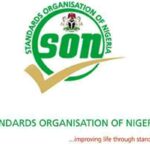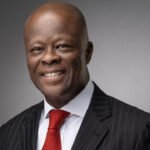A sketch of today’s Nigeria reveals signs of a failing state. Her life’s journey has been mapped in deplorable milestones. And the signs of the invidious history repeating itself loom large. The absurdity index in Nigeria is deepening. For instance, insecurity is not merely recurring, it is multiplying. Corruption is escalating. The divisions across the hems of differences among the people are aggravating irretrievably.
It is for this reason that those who are familiar with the tragic sequence of that lead to state failure are fearful that the case of Nigeria is, ominously, a matter of time. Standing from where Karl Maier, author of the searing prophetic political portrait of Nigeria, you will not fail to see that indeed, this house has fallen.
Public trust on the leadership ebbs exponentially. The discerning among us have blamed all of these on the failings of leadership in the public space. Chinua Achebe, author and activist identified the absence of leadership as the central problem confronting Nigeria.
Faced with this recurring challenge, you would expect that the process of choosing a leader at national, regional and state levels will attract the most rigorous, transparent and empirical processes as a correctional effort. In a few months from now two states in Nigeria, namely Bayelsa and Kogi will be picking governors whose leadership endowments or the lack thereof will determine the competitive direction of its people in the near decades. For Bayelsa state, the anchor governance platform of Nigeria’s fourth most populous ethnic nationality, the Ijaw, the significance is much more telling. Splintered across a few states, the Ijaw nation only has access to the control of one state.
In effect, any vision of the future for the Ijaw within the Nigerian nation must be processed and taken ownership of by whoever occupies the Government House in Yenegoa.
So for Nigeria’s fourth major ethnic nationality the options, for a break out leadership renaissance, feature only one pot from which to look in. Whatever emerges as the leadership choice in a governorship election in Bayelsa state determines the limits of the aspirations of every other Ijaw elsewhere in Nigeria. In effect, the significance of the governorship elections in Bayelsa state this November is beyond the political realities within that state boundary.
For instance, being the only major ethnic nationality in Nigeria which environmental, cultural and economic structure have been most dismantled by oil exploitation for the economic sustenance of successive national governments, if the Ijaw nation sought to raise a matter of why the proceeds of oil is being used to fund the construction of standard railway gauge lines which have been carefully designed to exclude the Ijaw nation, or why the Nigeria electrification roadmap recently signed between the Federal Government and Siemens for 1,350MW in Abuja, 1,350 MW in Kaduna, 1,350MW in Kano and 450MW in Lagos for transmission assets upgrade, grid automation, national metering infrastructure, power system simulation with estimated cost at €330 Million and €250 Million respectively were designed to sidetrack the Ijaw nation, such crucial matter can only get traction if the leadership in the Government House in Yenegoa took ownership of such matter.
So, this article has the objective of establishing that the governorship election in Bayelsa state is a prime strategic leadership matter that bothers on the continued relevance and survival of the Ijaw nation in Nigeria. Drawing therefore from this, what attributes should the party delegates be looking out for when they file out to pick a candidate? And ultimately, what personal or professional performance indicators in such individual’s career milestone should pre-occupy the choice that each delegate makes?
Of the two federal projects mentioned above with potentials to catalyze a resurgent economic growth and expansion in Ijaw for which the government has been negligent about, who among Ijaws accept with the Federal Government that the people are not deserving of the projects?
If every Ijaw man and woman believed that they were deserving of these projects, who among the aspirants angling for delegates’ endorsement and votes would Ijaws pick out as capable of deploying personal brilliance, the force of reason and fresh, factual insight to build compelling case in Abuja to cause a review and an inclusion speedily? The man who brings the most engaging and convincing value proposition to the table evidently is Rear Admiral John Jonah, (rtd.) the current deputy governor of the state. He comes fully made for purpose and extra-ordinarily prepared for a season like this. In a time in which insecurity has made life and movements near suicidal in Nigeria, not only is Rear Admiral Jonah most equipped professionally and mentally to design a structure that secures lives and properties his ideas, necessarily commands respect even at the highest echelons of policy in Nigeria.
With an impeccable military career that culminated in the headship of the National Defence College in Nigeria, the flagship military strategy and policy epicenter, Rear Admiral Jonah authoritatively operates at a level above the rest. Not a man to be drawn to personal and material agenda, the Ijaw nation can be assured of an unblemished voice that resonates its reality and aspirations in crucial quarters, without getting ensnared and compromised. And surely, because he is seasoned in strategy and knowledgeable of the intricacies and complications of navigating through the landmines of power gates, Bayelsa and especially the Ijaw nation can rest assured that the foundation and infrastructure of engagement and collaboration that will take it to the future with confidence are tied to Jonah’s political journey.
Having served as deputy governor, Rear Admiral Jonah already wears the shoes and therefore knows where it pinches. Accordingly, his election will likely launch the state into a new era of accelerated and focused development. He already acknowledges that the most critical resource of the state is the youth and knows that for these youths to compete advantageously in the future in a dramatically changing Nigeria, they have to be equipped with the right skills, particularly in the creative and the digital economy.
Imbued with inner strength and driven by a desire to redesign the state for economic competitiveness and greater strategic importance, Rear Admiral Jonah knows what to do to change the subsisting orientation that keeps the Government House as the only business in the state. His well distilled thoughts are that to lift the greater mass of the people out of poverty and into financial independence and prosperity there must be an urgent and sustainable plan that pulls the teeming youths out of desperate and total dependence on government with a government assisted start-up scheme.
Essentially, the significance of the political journey that Jonah has embarked upon is fundamental for lifting the people of the state out of poverty and dependence and strategic for the Ijaw nation as it confronts a new era of Nigeria without the prospect of oil economy. In summary, John Jonah bears a quintessential leadership values for which Bayelsa state and the wider nation of Ijaw shall do well to crave and to court.
Obiora Chukumba wrote from Port Harcourt

 Join Daily Trust WhatsApp Community For Quick Access To News and Happenings Around You.
Join Daily Trust WhatsApp Community For Quick Access To News and Happenings Around You.


